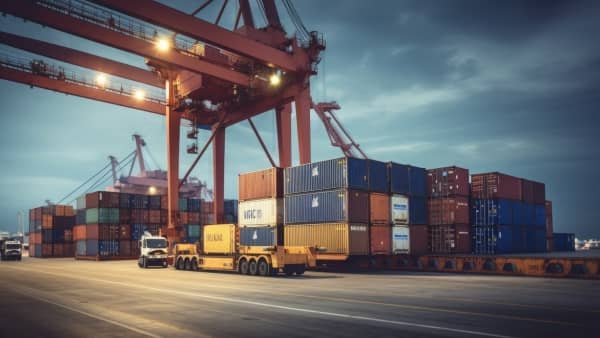MSME Full Form is known as Micro, Small, and Medium Enterprises
What is MSME Registration?
MSME registration stand for Micro, Small, and Medium Enterprises registration. It’s a government-initiated process designed to provide recognition and benefits to businesses falling within the micro, small, or medium enterprise categories based on their investment in machinery or equipment and annual turnover. This registration offers various advantages to these enterprises, such as access to subsidies, schemes, and support from the government.
Micro, Small, and Medium Enterprises cover a wide range of businesses, from small shops to manufacturing units. To encourage their growth and development, the government has introduced specific policies and incentives. The MSME registration process involves submitting basic business details, including an Aadhaar card, business name, type of business entity, and investment in plant and machinery or equipment. Upon successful registration, the MSME receives a certificate with a unique identification number, essential for availing various benefits like subsidies on loans, easy access to credit, and exemptions under certain laws and regulations.
Overall, MSME registration aims to foster the growth of small and medium-sized business by providing them with recognition and opportunities to thrive in the competitive market.
Objective of MSME Registration
There are various objective of msme registration like government recognition, access to benefits, legal and regulatory support, and many more. They are explained below:
1. Government Recognition
MSME registration aims to provide official acknowledgement and identity to Micro, Small, and Medium Enterprises (MSMEs), ensuring their visibility and distinct status in the business landscape, thereby facilitating their participation in various government and private sector initiatives for growth and development.
2. Access to Benefits
The registration process intends to offer MSMEs access to an array of government-sponsored schemes, subsidies, and support systems tailored to address their unique needs, enabling them to leverage these benefits for sustained growth, stability, and competitiveness in the market.
3. Facilitating Finance
One of the primary goals is to simplify access to financial support by streamlining the process for MSMEs to secure credit and loans from banks and financial institutions. This initiative often includes preferential rates and tailored financial products to encourage business expansion, innovation, and stability.
4. Legal and Regulatory Support
MSME registration endeavours to relieve these enterprises by granting exemptions, benefits, and simplifications under various legal and regulatory frameworks. This support eases compliance burdens, enabling MSMEs to focus more on business operations and growth.
5. Encouraging Growth and Competitiveness
Through registration, MSMEs gain opportunities to participate in government procurement tenders and contracts, fostering their growth and competitive edge in the market. This inclusion enables them to showcase their capabilities and expand their market presence, contributing to overall economic development.
Advantages of MSME Registration
There are the various advantages of MSME registration like access to government schemes, easier credit availability, legal and regulatory benefits and many more. They are explained below:
1. Access to Government Schemes
MSME registration unlocks a plethora of government schemes, subsidies, and incentives curated exclusively for these enterprises. This facilitates financial aid, skill development programs, and technology assistance, nurturing their growth trajectory.
2. Easier Credit Availability
Registered MSMEs benefit from simplified loan procedures, reduced interest rates, collateral-free loans, and priority sector lending, empowering them to expand operations and invest in development.
3. Legal and Regulatory Benefits
Enjoy exemptions and benefits under diverse laws, including credit linked capital subsidy, reduced fees for patents and trademarks, and protection against payment delays, easing compliance burdens and fostering a business-friendly environment.
4. Enhanced Market Competitiveness
Registration grants access to government procurement opportunities and tenders, allowing MSMEs to compete on a larger platform, establish credibility, and diversify their market reach.
5. Business Growth Facilitation
The availability of financial aid, specialized schemes, and supportive policies under MSME registration accelerates business growth, encouraging investments in technology, infrastructure, and market expansion.
6. Technological Advancements
MSME registration provides support for technological upgrades, promoting innovation and efficiency improvements, thereby enhancing competitiveness and market relevance.
Disadvantages of MSME Registration
There are various disadvantages of msme registration like limited growth, access to finance, Operational Constraints, and many more. They are explained below:
1. Limited Growth
MSMEs encounter growth limitations due to size-based constraints, hindering competitiveness against larger enterprises in specific markets. Such restrictions, like capped investments or turnovers, impede expansion prospects, restricting their ability to scale effectively and compete in certain sectors.
2. Access to Finance
Despite MSME registration benefits for credit accessibility, stringent lending criteria and lack of collateral often challenge MSMEs in securing substantial funding. This hurdle limits their financial capacity despite favourable provisions.
3. Operational Constraints
Regulatory compliances burden MSMEs with added administrative costs, stemming from adhering to diverse legal norms. Meeting these requirements becomes an operational challenge, impacting agility and resource allocation.
4. Market Perception
MSME classification may lead to perceived inferiority in capability or reliability among potential clients or partners. This bias might hinder business prospects due to a presumed lack of competitiveness compared to larger corporations.
5. Limited Resources
Inadequate access to skilled labour, technological advancements, and modern infrastructure impedes MSMEs’ competitiveness. These constraints hinder their ability to innovate and adopt efficient practices, affecting their market presence.
6. Dependency on Government Policies
Changes in governmental policies regarding MSMEs significantly affect their operations. Alterations in policies can either positively augment or negatively impact the benefits and concessions available to MSMEs, making them dependent on regulatory shifts.
Who can apply for MSME Registration
- Individuals, startups, business owners, and entrepreneurs: Various individuals involved in entrepreneurial pursuits or business ventures, including startups and established business owners, seeking legal recognition and support.
- Private and public limited companies: Entities structured with shareholders and governed by specific legal frameworks, differing in aspects like ownership, governance, and accessibility to capital markets.
- Sole proprietorship: Businesses owned and operated by a single individual, legally inseparable from the owner, assuming all liabilities and responsibilities.
- Partnership firm: A business structure where two or more individuals manage and operate a business, sharing profits, liabilities, and responsibilities as per a partnership agreement.
- Limited Liability Partnerships (LLPs): A hybrid business structure combining elements of corporations and partnerships, providing limited liability to its partners while maintaining flexibility in operations.
- Self Help Groups (SHGs): Informal associations of individuals, typically from similar socio-economic backgrounds, collaborating to address common goals like entrepreneurship, finance, or social support.
- Co-operative societies: Organizations formed by individuals or entities with common economic, social, or cultural objectives, collectively managing resources and benefiting from shared interests.
- Trusts: Legal entities established to manage assets or resources for specific purposes outlined in a trust deed, often for charitable, educational, or private objectives.
Documents required for MSME Registration
- Addhar card
- Pan card
- GST ( if applicable)
- Business Bank Account Details
MSME Registration Process Step by Step
- Go to the Udyam website: Visit https://udyamregistration.gov.in/ on your computer or phone.
- Choose the right option: Click on ‘for new entrepreneurs who haven’t registered yet as MSME or those with EM-II’.
- Enter your Aadhaar details: Put in your Aadhaar number and your name as it appears on your Aadhaar Card. Then click to confirm.
- Tell about your business: Share details about your business, like its name, address, and what it does.
- Add your bank info: Enter your business bank account number and the IFSC code.
- Describe what your business does: Talk about the main thing your business does and select the category it fits in.
- Check everything: Take a moment to look over all the info you entered. Make sure it’s all correct, then click ‘Submit’.
- Stay alert: Keep an eye on your email and phone. You’ll get a special number there after you’ve submitted.
- Get your certificate: Use the special number to log back in later. You’ll find your official certificate there to download and keep it properly & safe.






